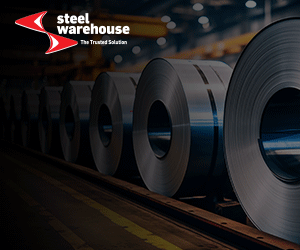Safety: The New Competitive Advantage in a World of Liability
Phil La Duke of ERM reports on why more companies are using a prospective supplier’s safety record as criteria for awarding business and why some shops are losing profitable contracts to competitors with better safety records.
Posted: May 13, 2013
This is old news for industry segments such as construction, where a bidder’s safety record plays a prominent role.
But for manufacturers who think they are immune to this issue, think again. Concern over a supplier’s safety record is becoming common in organizations as diverse as agriculture to healthcare.
In some cases, companies have a much more practical reason for considering supplier safety when awarding business: cost. It stands to reason that companies with high injury levels tend to have higher operating costs, which are typically passed on to the customer. Higher injury rates are a sign of operations with higher waste levels. Why pay a premium for an inferior product or service?
Finally, many companies understand that their employees often have to go on to a vendor site for prolonged periods of time and they want to protect their people. This may sound corny, but a growing number of companies will not do business with a supplier that has a poor safety record simply because they value their people and will not subject them to unsafe working conditions anywhere they find them.
HOW MUCH IS REALLY AT RISK?
Incident rates are calculated based on both the number of injuries and the number of hours worked. What this means is the smaller the supplier, the more disastrous a single injury can be. A manufacturer with 100 employees is much more adversely affected by a single injury than one with 500 employees. Similarly, a company that has worked considerably more hours than a competitor will have a lower incident rate simply because of the increase in the number of hours worked.
The typical response to worker injuries has been concern for the worker, which is the appropriate response. But now companies must also look at how their safety performance impacts their ability to compete.
WHERE THERE IS PRESSURE TO COMPETE,
THERE IS PRESSURE TO CHEAT
The increased business threat to an organization’s livelihood could potentially create a climate that falsifies injury reports, over zealously (to the point of criminality) pursues claims management, and inappropriately pressures workers not to report injuries through hackneyed incentive programs.
This is an even bigger threat to a manufacturer than recordable injuries. Its customer may sympathize with a high incident rate caused by a relatively small population, but that customer is not likely to cast a kind eye on criminal or unethical practices. Even if a company was able to get away with concealing some injuries, the far bigger problem is that under-reported injuries make it harder to identify systemic causes of risk.
Concealment of risk lulls organizations into a false sense of security, at least until disaster strikes and a worker is killed or horribly injured. At this point the injury cannot be concealed, chief executive officers get charged with homicide, citations and fines are handed out like Halloween candy, and the customer runs from the vendor at top speed.
IS THERE NO HOPE?
Getting control of workplace safety is pretty simple. It typically doesn’t require expensive capital investment, complex schemes brought in by fast talking safety vendors, or even a lot of work. The simple fact of this matter is that a company’s safety lies in the hands of its employees. To make any workplace safer the employees must want it to be safer.
Once a manufacturer takes safety seriously – from an efficiency, competitive, and sustainability perspective – that shop will find many simple, practical and fast things can be done to protect its workers, its investment, and its livelihood. If a shop doesn’t care about safety now, maybe it’s appropriate that its business does fail.















